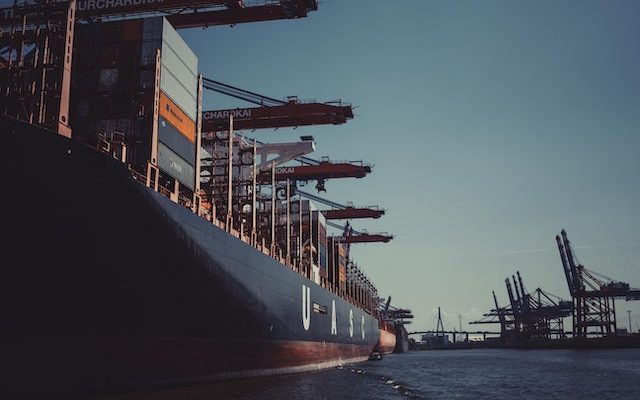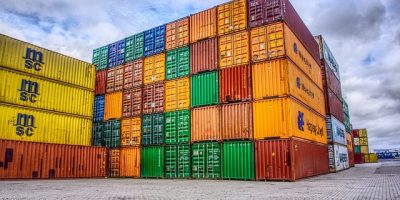Like many industries, including the rail, airline and petrochemical sectors, the maritime industry can appear familiar yet distant. We are all somewhat familiar with these industries, but for the majority of the population, they are removed as far as our day-to-day lives are concerned. We all use trainlines, yet very few of us are actually familiar with how they work. The same is true of other enterprises that operate in the eye of the public. When you consider airlines, Boeing and Airbus might come to mind, and Exxon, BP and Shell are synonymous with petrochemicals. However, while we use Boeing aeroplanes and purchase Exxon gas, many of us never consider the industries behind those businesses and sectors, nor the multitude of services they rely on to cement continuity in their day-to-day operations.
To outsiders, the maritime industry may appear similarly daunting. It transports more than 90% of global trade and supports the continued operation of many economies around the world – yet to the public, little is actually known about the sector itself. In reality, many ocean-going ships, vessels and boats can be likened to fully-autonomous villages with a number of onboard solutions including catering, medical care and marine water solutions such as water filtration.
Water filtration in particular plays a vital role in the continued operation of the maritime sector but like many crucial services, isn’t often thought about by the general public.
So what is water filtration? And what are the advantages of water filtration for the maritime sector?
What is water filtration?
As the name suggests, water filtration is the filtering of water for the purpose of lowering contamination through the use of a physical barrier.
In general, most vessels and ships operating within the maritime sector generate their own fresh water. In the past, this onboard solution was produced by evaporation. As a result, filtration needs were limited to salt water intake and other traditional requirements. Water could also be purchased and loaded onto the vessel at a port – this method is still widely used.
In this day and age, many owners/operators are also switching their vessels over to Reverse Osmosis (RO) water makers, meaning filtration requirements are becoming increasingly more complex. Besides the RO membrane, most shipboard RO freshwater systems have pre and post-filters and treatment that ensures a reliable flow of fresh water for the crew, as well as any passengers that may be onboard.
The benefits of water filtration
Although supplying passengers and crew members with fresh, hygienically clean water can be challenging at sea, doing so is absolutely crucial. As a result, water filtration techniques, as well as other marine water solutions, boast a number of benefits for the maritime sector.
The biggest benefit of water filtration is the most obvious – water filtration removes impurities. It also removes potentially dangerous contaminants such as chlorine, by-products of disinfectants and even heavy metals such as mercury, lead, and arsenic, without removing the important minerals we need including magnesium, fluoride, calcium, and zinc. These nutrients are vital at sea, which is particularly relevant for working vessels where the mental and physical health of the crew is of the utmost importance.
Water filtration and environmental sustainability
In the past, the maritime industry hasn’t been the focus of scrutiny when it comes to environmental sustainability. However, in recent years, the sector has been highlighted as a leading contributor to global carbon emissions, resulting in increasing pressure to implement more sustainable practices.
As a result, many owners/operators are increasingly turning to modern water filtration systems. Reusable water bottles have also become more popular, with many owners/operators opting to give their crew reusable containers in lieu of single-use plastic bottles. In doing so, the industry is minimising waste, reducing the need for additional transportation onshore and use of barges to lift pallets, resulting in fewerarbon emissions and a more reliable, cost-effective solution to more traditional practice.
Final thoughts
Like many industries, including the rail, airline and petrochemical sectors, the maritime industry can appear familiar yet distant. Although these industries are somewhat familiar to all of us, for the vast majority of people, they are removed as far as our day-to-day lives are concerned. Despite the fact that we all use trainlines, relatively few of us fully understand how they operate. Other businesses that conduct business in front of the public share the same characteristics. Boeing and Airbus may come to mind when thinking of airlines, and Exxon, BP, and Shell are considered to be the industry leaders in petrochemicals. However, while we use Boeing aeroplanes and purchase Exxon gas, many of us never consider the industries behind those businesses and sectors, nor the multitude of services they rely on to cement continuity in their day-to-day operations.
The maritime business could seem equally intimidating to outsiders. Even though it enables the continuous operation of numerous economies throughout the world and transports more than 90% of all global trade, the general public knows very little about the industry itself. In fact, a lot of ocean-going ships, boats, and vessels can be compared to fully autonomous communities with a variety of onboard services including catering, medical care and marine water solutions like water filtration. Water filtration in particular is essential to the continuous operation of the maritime industry but, like many other important services, is not often considered as important by the general public.
Although it can be difficult at sea, providing passengers and seafarers with fresh, hygienically clean water is essential. As a result, water filtration methods and other marine water treatment options have several advantages for the maritime industry. Perhaps most important, modern water filtration ensures sure everyone has access to potable water at sea. Its contribution to the maritime sector should not be overlooked.














Comments